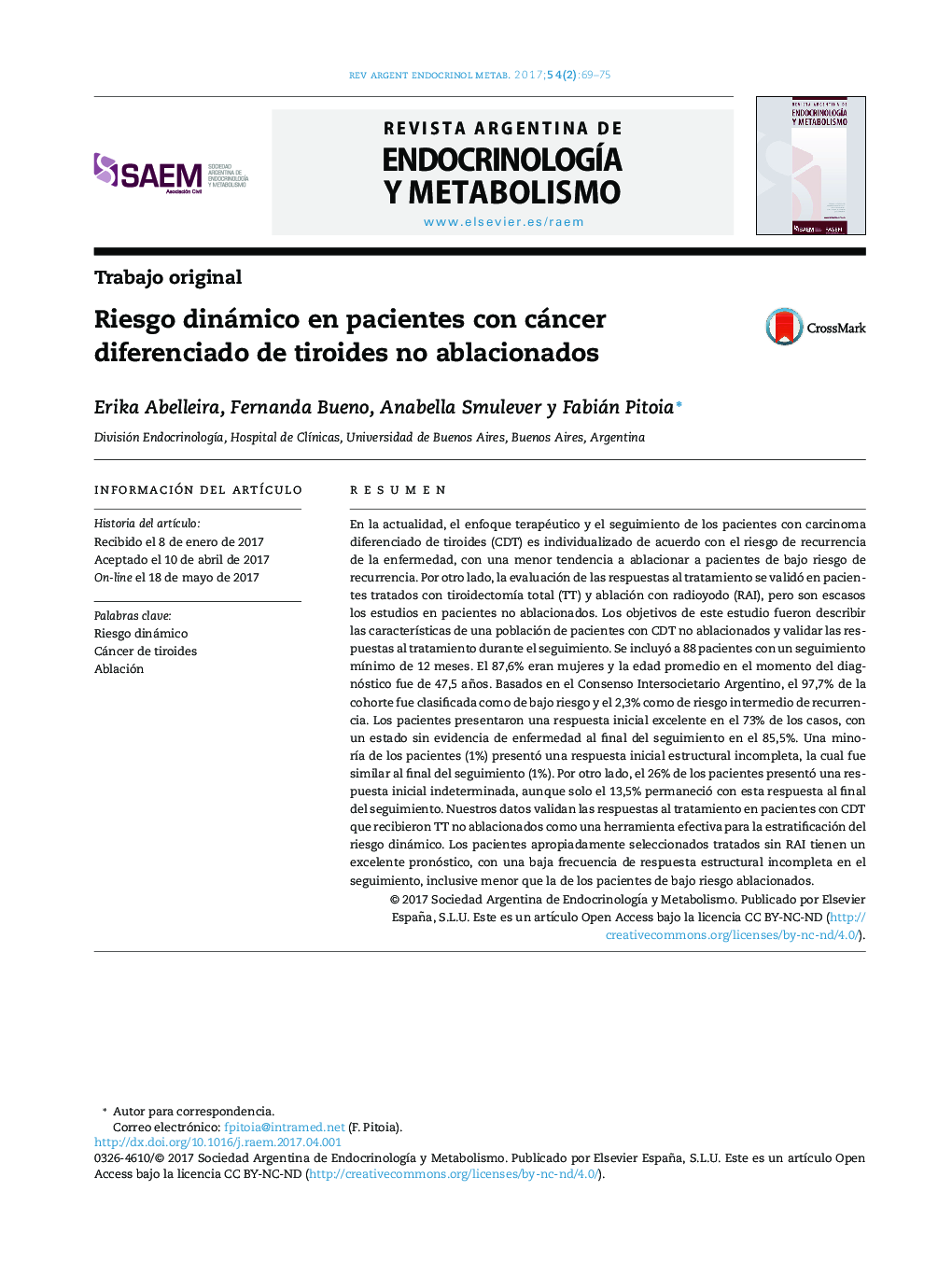| Article ID | Journal | Published Year | Pages | File Type |
|---|---|---|---|---|
| 8724432 | Revista Argentina de Endocrinología y Metabolismo | 2017 | 7 Pages |
Abstract
The therapeutic approach and the follow-up of patients with differentiated thyroid cancer (DTC) is currently individualised according to the risk of recurrence, with a lower tendency to perform remnant ablation (RA) in patients with low risk of recurrence. While response to therapy assessment has been validated for DTC patients treated by total thyroidectomy (TT) and RA, it has not been widely confirmed in patients treated with TT without RA. The aims of this study were to describe the characteristics of the population of patients treated with TT without RA, and to validate the response to therapy. The study included 88 patients followed-up for at least 12 months after surgery. In the entire cohort, 87.9% were female and the mean age was 47.5 years old. Based on the Argentine Intersociety Consensus, 97.7% and 2.3% were classified as low risk and intermediate risk of recurrence, respectively. Patients had an initial excellent response to treatment in 73% of cases, with a disease-free status at the end of follow-up of 85.5%. A minority of patients (1%) presented with an initial structural incomplete response, which was similar at the end of follow-up (1%). On the other hand, 26% of the patients had an initial indeterminate response, although only 13.5% remained with this response at the end of follow-up. These results validate the responses to treatment in DTC patients treated with TT without RA as an effective tool for the dynamic risk stratification. Patients appropriately selected who did not receive RA have an excellent outcome, with a low frequency of structural incomplete response, even lower than that observed in low risk ablated patients.
Related Topics
Health Sciences
Medicine and Dentistry
Endocrinology, Diabetes and Metabolism
Authors
Erika Abelleira, Fernanda Bueno, Anabella Smulever, Fabián Pitoia,
